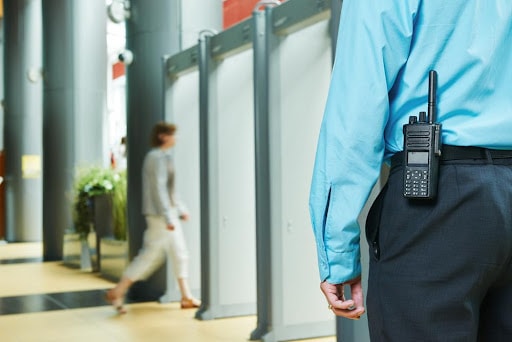NFPA 101 states that fire watch guards are charged with keeping an eye on your business or building at all times. If they see any abnormal conditions, they’ll immediately contact emergency personnel and alert building occupants.
This service is necessary for commercial properties that need to be monitored by a professional. They keep track of all the fire safety equipment and systems on-site, so they know if any need repair or replacement.
1. Fire Watch Duties
Fire watch duties are a vital safety precaution for anyone performing construction or maintenance tasks that involve open flames, heat sources, or ignition points. These can smolder over time and spark a fire that can cause severe damage or even death.
To be effective, San Francisco Fire Watch Guards must forego other responsibilities to concentrate on identifying and controlling fire hazards. This includes a focus on surveying areas near hot work and detecting early warning signs of trouble.
The fire watcher must have a solid understanding of facilities and procedures for sounding an alarm in the event of a fire, as well as how to use fire-extinguishing equipment.
Fire watch patrols are typically conducted every 30-60 minutes. They should cover the impacted area systematically, documenting their findings after each round.
2. Fire Watch Patrols
Fire watch patrols are a critical safety measure that can help businesses and individuals protect themselves from the devastating effects of fire. These individuals can monitor high-risk areas, buildings, and special events for potential hazards that might lead to a fire.
If a fire alarm or water-based sprinkler system is down for an extended period, the National Fire Protection Association (NFPA) requires that a building be assigned one or more professional fire watch guards to monitor the premises during this time.
These professionals systematically cover impacted areas at regular intervals and document their findings on fire watch logs. This record serves as proof of thorough inspection that is vital for compliance with government regulations.
3. Fire Watch Recordkeeping
When you hire fire watch guards, you need to be sure that you’re getting them certified and trained properly. They should also keep accurate and timely patrol logs that you can use to make a quick call in the event of an emergency.
In many regions, it’s a requirement to keep a logbook of all fire watch activity. This will help you track any hazards that may arise on-site and make sure that they’re mitigated as soon as possible.
Traditionally, a fire watch is required for construction sites and other areas where flammable materials or equipment are being used. This is because numerous fire hazards can occur when hot work is done, which can result in damage to property and injuries.
This is why many jurisdictions mandate that you maintain fire watch guards on your premises until the construction is complete. In addition, you could be compelled to keep them on your site if your sprinkler system fails due to construction or water supply issues.
4. Fire Watch Training
Fire watch guards are required to be trained for their duties, which include monitoring a building or area that might be a potential fire hazard. If they notice smoke, open flames, or other abnormal conditions, they must notify emergency personnel, alert building occupants and help evacuate the premises.
NFPA regulations require that fire watches be conducted whenever a building fire protection system is out of commission for more than 4 hours in 24 hours. Some authorities having jurisdiction (AHJs) also require extra crowd protection in public assembly buildings based on the number of people gathered or the nature of the event.
Fire watch guards should be familiar with the building or structure and know all impacted areas. They should systematically patrol the affected area every hour, documenting their findings and reporting any hazards to their supervisor or the site manager. They should have access to all impacted areas and receive training in the use of fire extinguishers.
